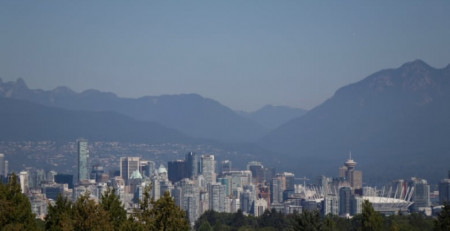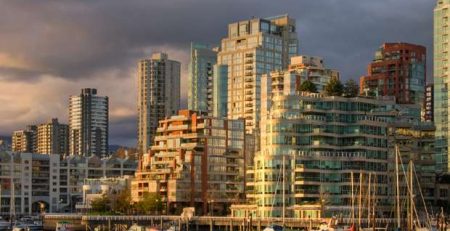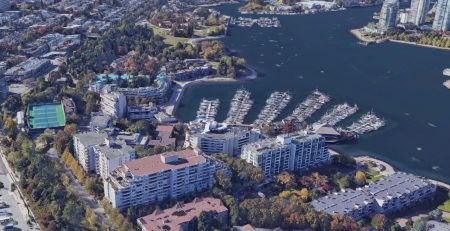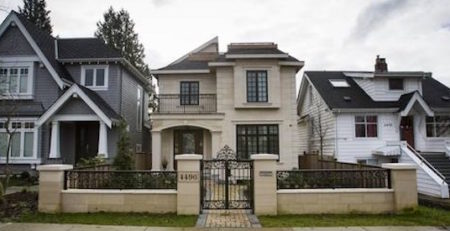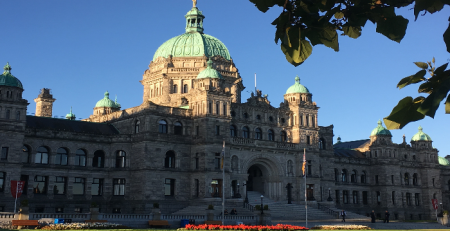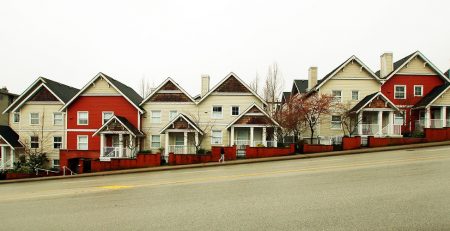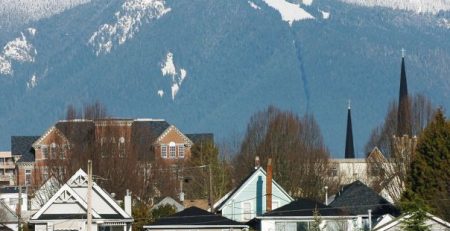Vancouver market on the uptick, but worries persist
[Globe and Mail – September 16, 2020]
In downtown Vancouver, the condo market has softened considerably, with prices coming down as more units come onto the market. And although the detached house market is robust, the number of houses for sale could increase once the people who took mortgage deferrals have to start paying again. If cash is tight, they might choose to unload their houses, increasing supply.
The key word for the current state of the housing market is uncertainty. For renters and buyers alike, there are opportunities. It’s a market strangely robust in the midst of an economy battered by a pandemic.
The British Columbia Real Estate Association released a report last week that said the trends under way are “very unusual.” August sales were the highest for that month since 2015 and prices are higher than they were prepandemic. Part of the reason for the uptick, it said, was that high-wage earners so far haven’t been significantly affected.
“The COVID situation has hit the low-wage earner hardest, and the highest-wage earner has barely been hit at all as far as employment and wage,” says Cam McNeill, executive director for real estate marketing firm MLA Canada.
Mr. McNeill says the industry is watching for how a prolonged economic downturn may affect those in the upper tier of income earners. “If we see that get hammered, that will find its way into the real estate market.”
As well, supply is currently much lower than it has been in previous downturns. In 2008-09, thousands of finished condo units stood empty and unsold.
“Supply numbers today are very low,” Mr. McNeill says. “They are starting to move up. We are watching it, but we are not seeing desperate sellers – or ‘forced sellers,’ I call them – yet. And I say ‘yet’ because we have the mortgage deferral program, government supports, things in place that have perhaps supported homeowners. When those start transitioning out that could create a pressure situation that’s going to see supply coming into the market.”
Because of the pandemic, buyers are also moving outward, away from the downtown core, and even away from the city, says Jason Turcotte, senior development manager of Cressey Development Group. He says demand for the company’s townhouse project in North Vancouver is so high that, rather than their usual practice of finishing construction before selling the units, they are considering selling them as presales this fall. And Mr. Turcotte says the time may be right for the development of a Kelowna property the company has owned for many years.
“It’s different than before – it’s not the market for the high-end downtown luxury condo, which was typically [targeted by] foreign dollars or newly immigrated dollars. That’s where most of that capital was going.” He says he has seen “a bit of an adjustment in consumer behaviour around these super-dense neighbourhoods, people seem to be shying away a bit,” Mr. Turcotte says.
Because of the uncertainty, developers are trying to reduce some of the risk and cost of development. Mr. Turcotte says he has talked to senior Vancouver city staff about his concerns.
“We were trying to give context, and some of the risks that we as developers are feeling because of the amount of uncertainty,” Mr. Turcotte says. “What the city has become accustomed to doing was such a big ask, and really feeling comfortable pushing the boundaries to ask, ask, ask, because they got used to a market that just bailed out, right? The longer they took to approve a project, often you’d get out the other end and go, ‘Oh man I was kicking and screaming, but the market moved 15 per cent while we were arguing about that, and now I’m looking good,’ because the market was so steadily increasing. Well, that is over. At least, the sense that it is a foregone conclusion is over.
“What we are seeing is, it’s holding on perfectly fine, but we are not prepared to sit here and say we are confident that it will continue without end, and we are trying to communicate that to the city. But that’s been a little challenging. They are slow to react to winds of change. I don’t think it’s because nobody cares. But it’s hard to change directions of a ship that’s been pointed in one direction for so long.”
The once-hopping downtown condo market for example is in a slump. Mr. Turcotte says what’s happening in Vancouver is happening in other urban markets, such as Manhattan, where the suburbs are active and the downtown is in a slump. Downtown realtors say the drop is because investors are losing confidence. Investors, or non-occupiers, make up a sizable portion of Vancouver condos. They own nearly half of the city’s condos, according to a 2019 report by Simon Fraser University’s City Program director Andy Yan, who analyzed Canadian Housing Statistics Program data.
Vancouver realtor Ian Watt is seeing many of those downtown condo owners unloading their investments. The people who were highly leveraged and believing that the market would only go up are getting hit the hardest, he says.
“With prices going down, many of these people are losing what little equity they had, and are drowning. Those who live within their means will be more than fine, but those who aren’t, are dumping their debt.”
Mr. Watt says the wave of listings has swamped some sellers. One of his Olympic Village listings, a one-bedroom unit at 609-1616 Columbia St., had an asking price of $699,000. It sold for $660,000, after two months on the market. It completes Sept. 24. Mr. Watt says the seller had to drop the price after several other units in the same building came onto the market. “It destroyed our momentum.”
Realtor Nicolas Blachette says the listings for downtown doubled from January to August. He cites the drop in rents, the loss of international visitors and students, and the increase in condo insurance.
“Buyers favour living in less dense neighbourhoods like Kitsilano and Mount Pleasant, which are performing much better,” he says.
Another factor is that investor-owners are seeing tenants vacate, and the short-term rental market is dead.
“The Airbnb [hosts] have entered the market now, because they can’t get nightly rentals. So everyone is trying to take on long-term tenants.”
Realtor and lawyer Patricia Houlihan has felt the loss of Airbnb income personally. She says she lost $21,000 of short-term revenue on one property over the summer, but she had the savings to cover the loss. Others aren’t as fortunate.
“I did what other people did, and converted it to long-term rental. But what’s happened is it’s harder to rent out long term because there are all types of [former] Airbnb [units] to compete with now. They used to say that all the Airbnb was taking away rental stock, and it was true. But now all of those who’ve converted to long term are pushing rents down.”
Interest in desirable detached houses is, however, still high. Ms. Houlihan, who specializes in Northshore properties, recently sold a house in Deep Cove in North Vancouver for $800,000 more than what she says it would have sold for pre-COVID-19. The waterfront house at 4696 Eastridge Rd. was listed for $3,248,800 in June and sold for $3.6-million after three days on the market. It’s one of three waterfront properties she has recently sold.
Supply has been tight, but she sees that slowly starting to change.
“If I were going to sell any time in the next year, I would list right now, because as people start listing, they won’t be doing multiples [offers]. I don’t think it’s going to be great for sellers next spring, but who knows. I hope it will be.”
Condos in a desirable location are still selling at a decent pace. At the start of the pandemic, Kush Panatch of Panatch Group launched presales of a 220-unit condo property in Port Moody, as part of a two-building project. Mr. Panatch, who sold half the building during the pandemic, said sales were strong enough that the prices are higher than they were on the first building. Port Moody has grown in recent years, with trendy restaurants and a young demographic moving into the area, which is only a 25-minute ride to downtown Vancouver and surrounded by nature trails. The first building is sold out, with construction under way. The entire development will complete in two years.
Mr. Panatch put a 16-storey concrete tower in Richmond on hold, because it would have been a riskier proposition. The potential purchasers in that area these days are local income earners and end-users.
“If you don’t have investors and a luxury market, you have to decide who you are building for,” the developer says.
When the pandemic started, buyers attempted to get discounts, which he refused. Instead, he purchased $10,000 worth of gift cards from 10 Port Moody businesses and gave them to buyers.
“I’m definitely more confident than I was in March, because we have more clarity about what COVID is, whereas in March it was a big black hole,” Mr. Panatch says. “I’m optimistic. I’m no psychologist, but I’ve been trying to figure out why they are making these decisions [to buy]. It comes back to the affordability of the price, and interest rates are a big part of the equation.”
Burnaby mortgage broker Jeremy Langdon says the ultralow rate is a huge factor.
“We’ve never seen anything quite like this,” Mr. Langdon says.
A five-year fixed mortgage is around 2 per cent, and rates are expected to stay low until 2023. But Mr. Langdon said the big unknown is the outcome of all the deferred mortgage payments, and how that could affect supply. An estimated 16 per cent of mortgage holders in Canada took advantage of six-month mortgage deferrals offered since mid-March, and Mr. Langdon saw many clients apply. The question of whether those deferrals will get paid off will become clearer going into October, he says. There will be some who are still financially strapped.
“My crystal ball is foggy. I’d hope that if you were able to defer and you are still in a tough financial situation, you would be pro-active and sell your home, because default would cost a fortune.
“You may see more properties as a result of that. We will see how that shakes out. We’re in completely foreign territory.”


